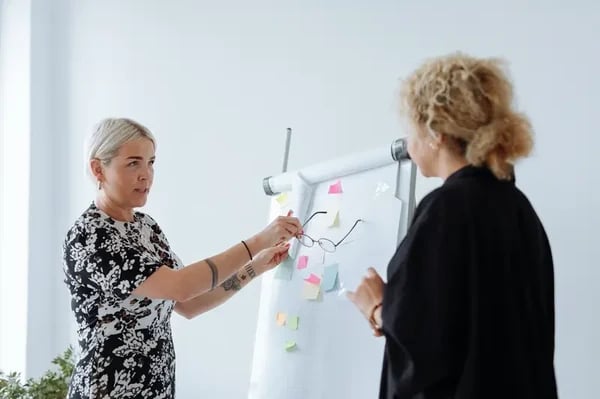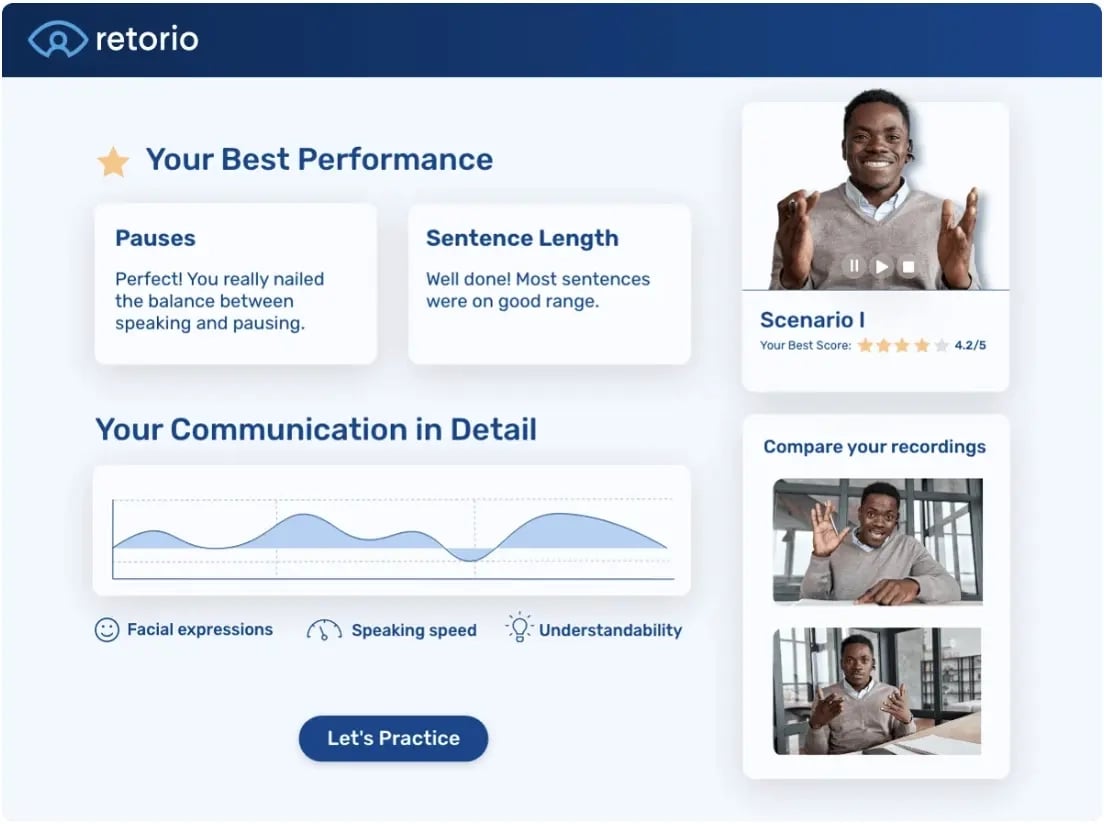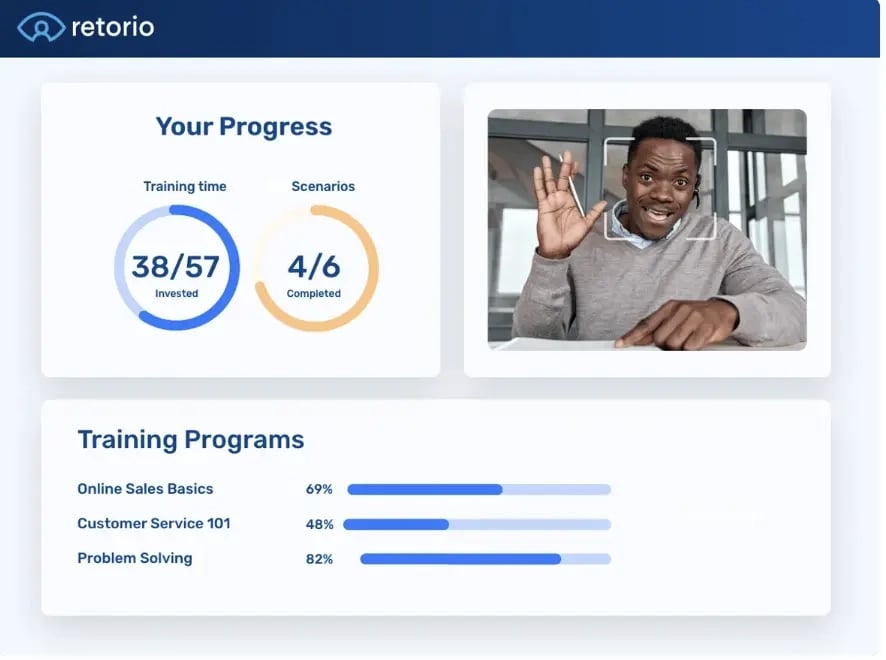According to Harvard University, the Carnegie Foundation, and the Stanford Research Center, having well-developed soft skills and people skills accounts for 85% of job success.
Soft skills have reached new heights in a world where technology and industries are growing at an unprecedented rate. Therefore, all managers must encourage employees to continue embarking on their journey for continuous soft skill development.
Especially in the realm of professional growth and development, the pursuit of excellence extends far beyond technical proficiency. It is the cultivation of soft skills that sets individuals apart, nurturing a harmonious blend of emotional intelligence and interpersonal finesse.
It is also essential to know that, beyond technical knowledge, the mastery of soft skills enables people to manage problems, form meaningful connections, and flourish both personally and professionally.
As you continue to read, we will delve into the seven ways that you can foster continuous soft skills development, nurturing emotional intelligence and interpersonal skills at the core. By embracing these strategies, forward-thinking organizations can propel themselves to new heights of success and create an environment where growth knows no bounds, in the best way possible.
What's in this post?
What are soft skills?
Soft skills are a collection of personal characteristics, innate qualities, and talents that enable people to connect effectively and harmoniously with others in a variety of social and professional contexts.
Soft skills, as opposed to technical or hard skills, which are unique to a given job or sector and can be easily assessed and defined, are more intangible and frequently play a considerable influence in molding an individual's general behavior, time management skills, communication style, and emotional intelligence.
These essential skills, such as effective communication, flexibility, and critical thinking, provide the foundation of a positive attitude that allows people to make informed decisions and promote healthy and positive attitudes in both personal and professional settings.
Want more insight into what soft skills are and why it is essential for a modern workplace? Click here.
Why are soft skills important?
Soft skills are an important part of strengthening one's ability to work with other team members and transferable skills that can help them to advance in their profession and daily tasks.
Soft skills can also help them to find, attract, and retain clients more effectively.
Presentation skills, networking ability, and etiquette knowledge can also help one to win new clients and additional business from existing clients. Therefore, honing your skills in dispute resolution, issue solving, and providing exceptional customer service may lead to stronger relationships with coworkers, vendors, and other professional connections. Finally, excellent soft skills inevitably help to build confidence, which is a great asset in business.
But that is not all. Here are a few extra reasons why soft skills are important. Below are a few more listed reasons:
-
Effective communication skills build better relationships with colleagues, clients, and stakeholders.
-
Problem-solving and critical thinking skills enable innovative and effective solutions.
-
Adaptability helps navigate changing work environments and industry trends.
-
Time management ensures efficient task organization and increased productivity.
-
Teamwork and collaboration, essential teamwork skills, lead to better synergy and enhanced project outcomes.
-
Strong leadership, leadership skills, and interpersonal skills inspire and guide teams effectively.
-
Conflict resolution fosters a harmonious work atmosphere and reduces tension.
-
Soft skills are essential in customer-facing roles, improving customer relations.

managers should take this into account during each one-on-one session.
According to the Emeritus 2021 Global Career Impact Survey, the following workplace soft skills are in high demand among professionals aiming to upskill their teams or organizations: Management/leadership (34%), critical thinking (24%), design thinking/creativity (24%), problem-solving (20%), innovation (20%), narrative (17%), and communication (15%) are the most important skills.
How to encourage continuous soft skills development
To build a high-performing and happy team, managers should encourage soft skill development among their employees that is beneficial for their own professional and personal development. Here are seven ways to do so.
1. Take on an immersive approach
Managers can support continual soft skill development by developing a dynamic learning environment that incorporates these skills into regular tasks. They can set a good example by displaying effective communication skills, empathy, and problem-solving skills, and they can also give continuous feedback to help employees progress and develop soft skills.
Employees can practice soft skills in real-life scenarios through soft skill training programs and benefit from one another's experiences through immersive courses, simulations, and peer learning opportunities. An immersive approach can also help motivate employees to actively participate in their growth.
2. Create a culture of mentorship
Establishing a culture of mentorship allows managers to pair experienced employees who exemplify strong soft skills with those seeking to enhance specific areas. Regular mentorship sessions, as mentioned in the previous point allow employees to receive personalized guidance, share experiences, and gain insights from seasoned professionals.
This creates a supportive learning community that promotes the sharing of knowledge and encourages employees to grow.
3. Set clear expectations
Communicating the importance of soft skills and setting out specific soft skill development expectations are key motivators for employees. Managers should outline the significance of soft skills in achieving individual team goals.
By linking soft skills improvement to performance evaluations and career advancement opportunities, employees are incentivized to prioritize their continuous development.
How can managers set clear expectations?
-
Communicate the importance of soft skills training and their relevance to employees' professional growth and success.
-
Define specific soft skills expected for each role and integrate them into performance goals and evaluations.
-
Encourage employees to take on self-assessments of their soft skills. Self-reflection will allow them to identify areas of strength and areas for improvement, taking ownership of their development journey.
4. Provide ongoing feedback and practice
Managers can use a range of ways to provide continual feedback and practice to support continued soft skills development. To begin, managers should hold frequent one-on-one sessions to review an employee's progress in developing soft skills and provide constructive feedback tailored to the employee's requirements.
Encourage open communication and provide a safe environment for workers to discuss their triumphs and difficulties to develop a culture of continuous growth. Secondly, managers can plan team-based activities like group talks, role-playing exercises, and collaborative projects that allow employees to develop and use their soft skills in real-life circumstances.
These engaging workshops not only help them improve their interpersonal skills but also encourage collaboration and efficient communication.
Managers should also utilize video-based assessments and AI-powered soft skills training to collect comprehensive feedback on employees' soft skills development. This data-driven approach allows managers to analyze success, detect trends, and identify areas for future improvement, ensuring that continual growth remains a priority.
5. Provide personalized training and workshops
Managers can provide personalized training and workshops to encourage continuous soft skills development by adapting learning experiences to the individual needs of their employees. Firstly, they should conduct assessments to identify specific soft skills areas where employees may require improvement or have expressed interest. Based on these insights, managers can offer targeted soft skills courses and workshops that address employees' unique development goals and career aspirations.
Furthermore, allowing employees to study at their own pace and convenience by providing flexibility in training forms such as online courses or in-person workshops helps them to develop top soft skills that will contribute to the company's long-term success more efficiently if it is completed at their own pace.
Managers can also leverage real-time feedback and performance data from platforms like Retorio's Behavioral Intelligence platform to gain instant, deeper insights into employees' strengths and areas for improvement.
Retorio's Behavioral Intelligence platform provides companies in delivering soft skills training that allows employees to have access to a personalized soft skills course that caters directly to their unique development needs. Retorio's AI-powered role-plays analyze an employee's behavior and communication style, generating personalized feedback to aid their soft skills growth.
Through the immersive role-play scenarios, Retorio's platform also helps employees to handle difficult conversations healthily and productively. Each training is personality-focused and is conducted in a safe space and can be accessed 24/7 anywhere in the world. This AI-powered training enables managers to create customized learning paths and offers support where it is most needed.

6. Measure and recognize progress
It is critical to implement measures for measuring employees' soft skill advancement to track the success of development programs. Self-evaluations, peer evaluations, and behavioral assessments can all give useful information about an employee's development.
Managers should also recognize and reward individuals who work hard to improve their soft skills. Recognizing their development and achievements in public generates a sense of accomplishment and inspires others to follow suit.
Great leaders take their time to learn about their team member's strengths and what motivates them. They can determine which soft skills will have a greater influence on their personal growth and professional goals by uncovering this.
More importantly - after implementing any soft skills training program, assess the results and impact on your employee's performance and behavior. Measuring the impact of the training can assist managers in determining whether the training program has reached its objectives, enhanced employees' soft skills, and if it had any beneficial consequences on their productivity, quality, customer satisfaction, and more.

where they stand and what they can further improve on to become their best selves.
7. Ask for regular feedback
Asking for regular feedback is an essential tool that empowers managers to encourage continuous soft skills development among their employees. Through ongoing feedback, managers can pinpoint specific areas where employees can enhance their interpersonal skills, enabling targeted support and resources to be provided.
This regular communication builds a sense of ownership in employees, making them feel valued and included in their soft skills development journey. By customizing training and support based on individual feedback, managers ensure that the learning content and approach align with employees' preferences and needs, resulting in a more effective and engaging development process.
Furthermore, seeking regular input promotes an open feedback loop, supporting an organizational culture of continual learning. Employees are more inclined to actively engage in self-assessment and improvement when they feel that their ideas are acknowledged and acted upon.
Asking for feedback also enhances manager-employee ties, encouraging more open and constructive dialogue. This enables open discussions regarding development progress, matching expectations for all sides, and cultivating a trustworthy and collaborative work atmosphere.
Furthermore, feedback enables managers to implement solutions to address issues that workers may have as they build their soft skills. Managers assist workers overcome obstacles and stay on track with their growth path by providing support and advice, eventually encouraging continuous improvement and total team success.
Benefits of continuous soft skills development in the workplace
Soft skill development can provide several benefits to your company, including:
| Increased efficiency and productivity | According to research conducted by Boston College, Harvard, and the University of Michigan, continuous soft skills development for soft skills such as communication and problem-solving can increase productivity and retention by 12% while providing a 250% return on investment (ROI) to the organization. Studies have also shown that leaders with strong soft skills can boost their team's performance by up to 30%. Employees will cooperate more successfully with coworkers, clients, and stakeholders by strengthening communication and collaboration skills while avoiding misunderstandings, disagreements, and errors that can negatively influence productivity and performance. |
| Enhanced interpersonal and professional relationships | Employees with high emotional intelligence through efficient soft skills training can understand and control their emotions and those of others, resulting in stronger interpersonal and professional interactions. They can sympathize, build rapport with others, positively encourage themselves and others, and much more. |
| Increased retention | Employees prefer to work at a company that values their growth and development. According to UK research, 63% of employees would consider moving jobs if another job position would provide them with better training opportunities. Companies can also save costs on recruiting by increasing employee retention. According to SHRM's 2021 Employee Benefits poll, 60% of companies stated that L&D opportunities are extremely essential for employee retention. |
| Increased innovative solutions | Research by Hendarman and Cantner, improving soft skills such as creativity and problem-solving contributes to individual innovativeness. This creates a work environment where employees can generate fresh ideas that bring value, address challenges and keep the organization ahead of competitors while meeting customer demands. Companies emphasizing innovation witness 2.6 times higher revenue growth and 2.5 times higher profit margins compared to those that overlook ongoing soft skills development. |
Retorio's Learning and Development (L&D) training has proven to be 80% successful in performance improvement. Retorio cuts down the workload by a ton by creating on-demand learning that fosters heightened productivity and provides managers with personalized learning paths for each participant with a variety of training content that works.
With Retorio, you can prepare your employees for what matters.
Are you ready to start building self-awareness and confidence in the workplace on a whole new level and initiate a winning streak? Click on the button below to get started right away!
FAQ
A soft skills development training plan is a structured and systematic strategy to improve an employee's interpersonal abilities and emotional intelligence. It identifies the specific soft skills that require development, such as communication, teamwork, problem-solving, and leadership. To encourage learning and practice, the plan contains a variety of training techniques, seminars, and resources. It establishes specific targets and goals for each employee's soft skill development, and it may include evaluations and feedback to track progress.
Regardless of the industry, five important soft skills that are valuable for success in any professional setting are communication skills, emotional intelligence, problem-solving skills, time management skills, and teamwork and collaboration.



